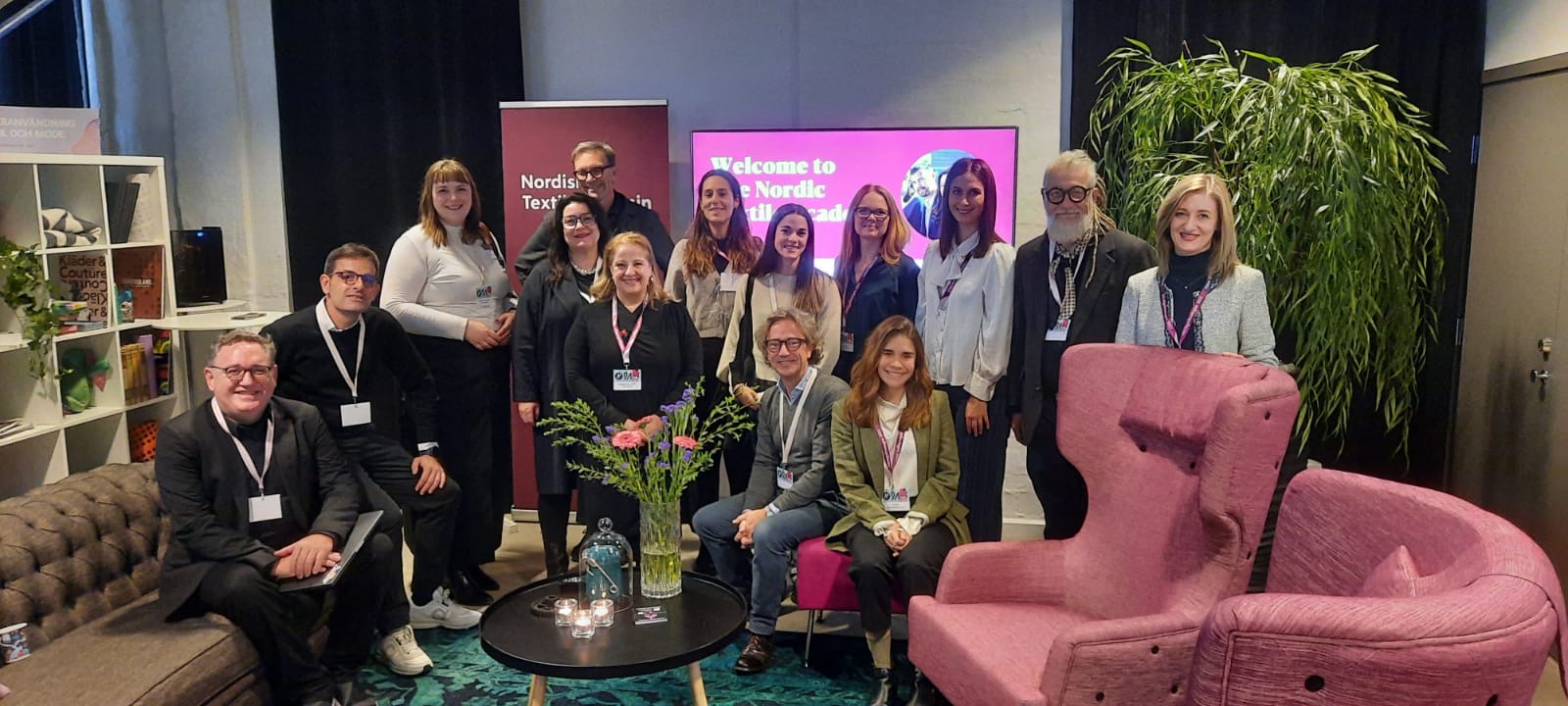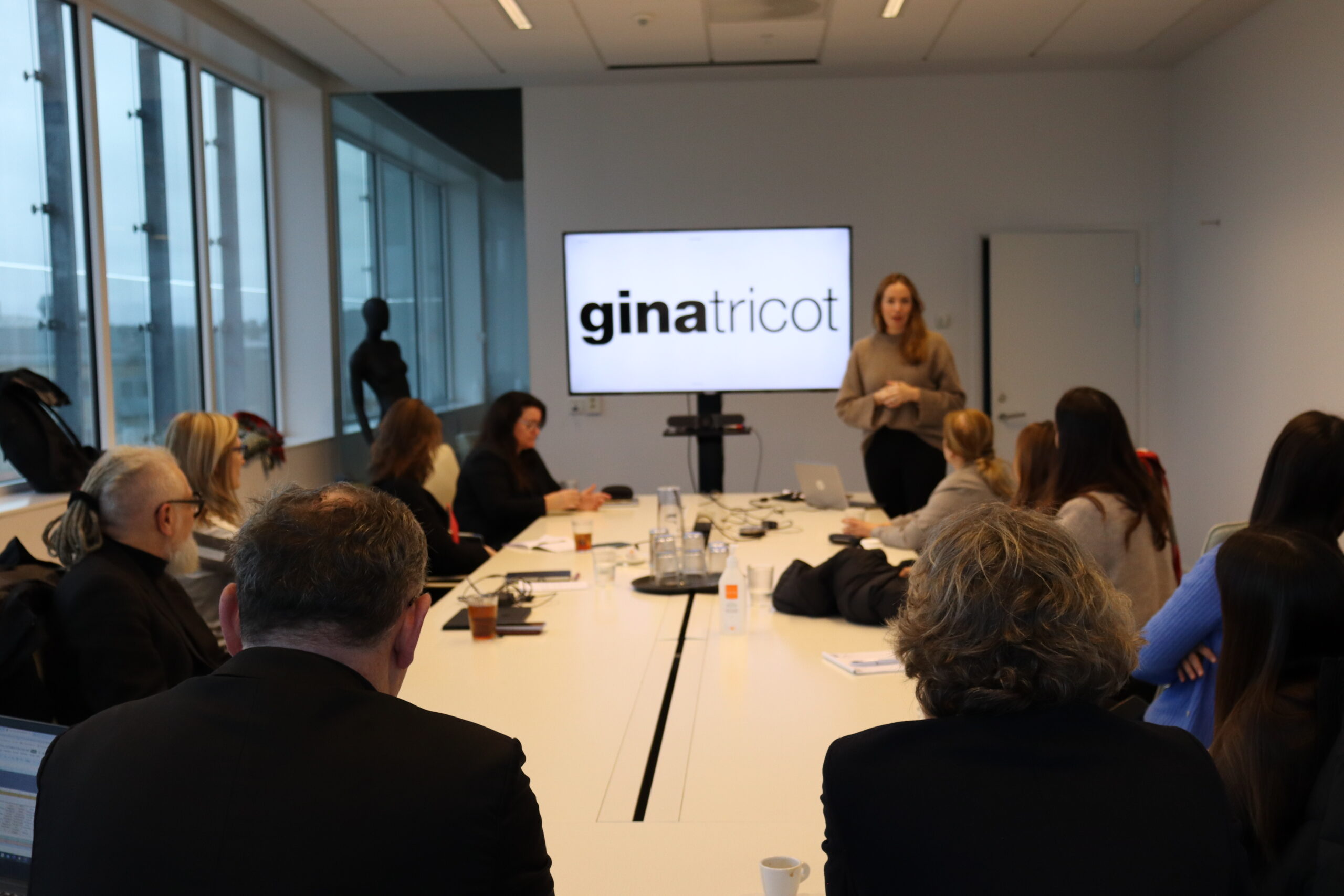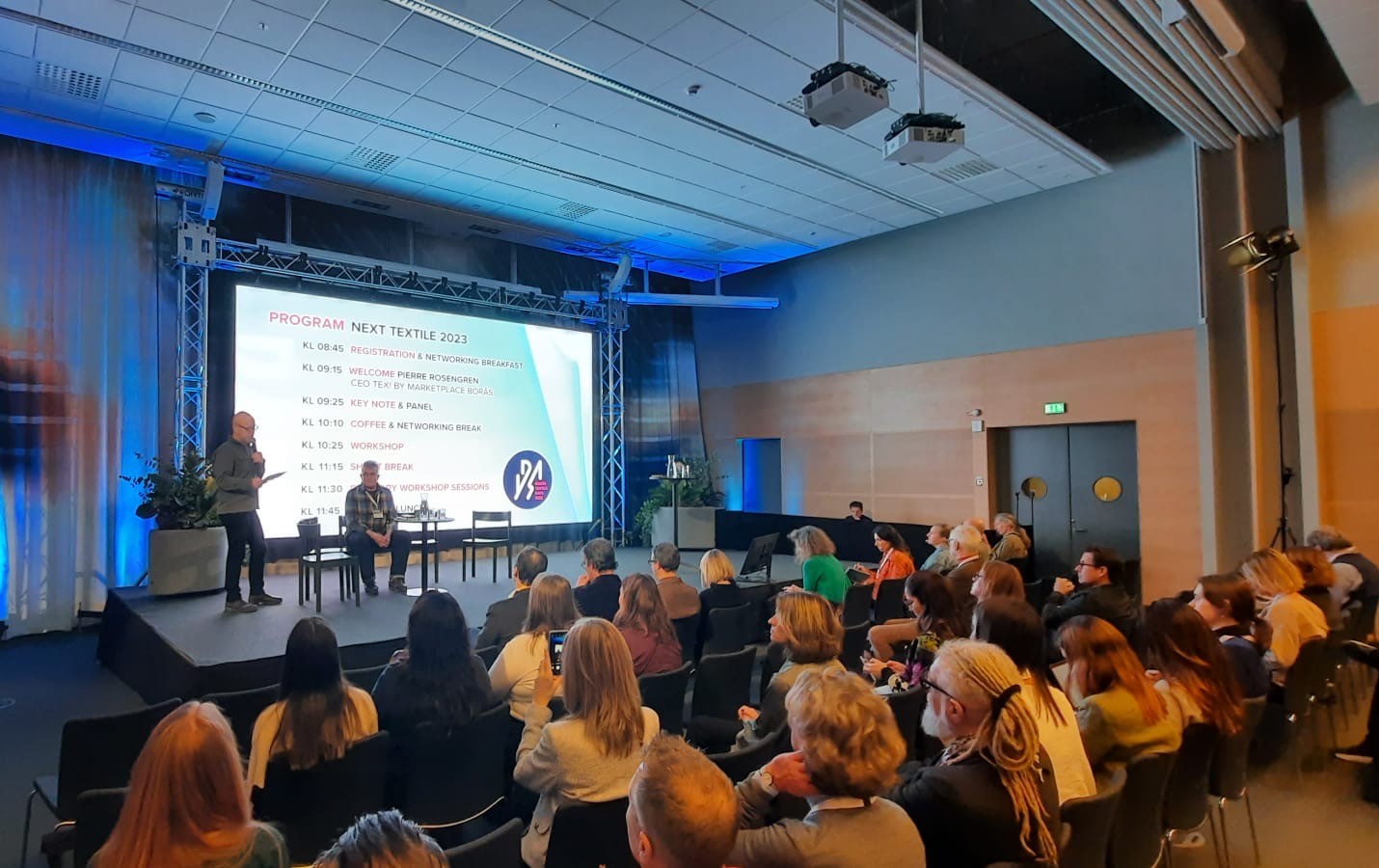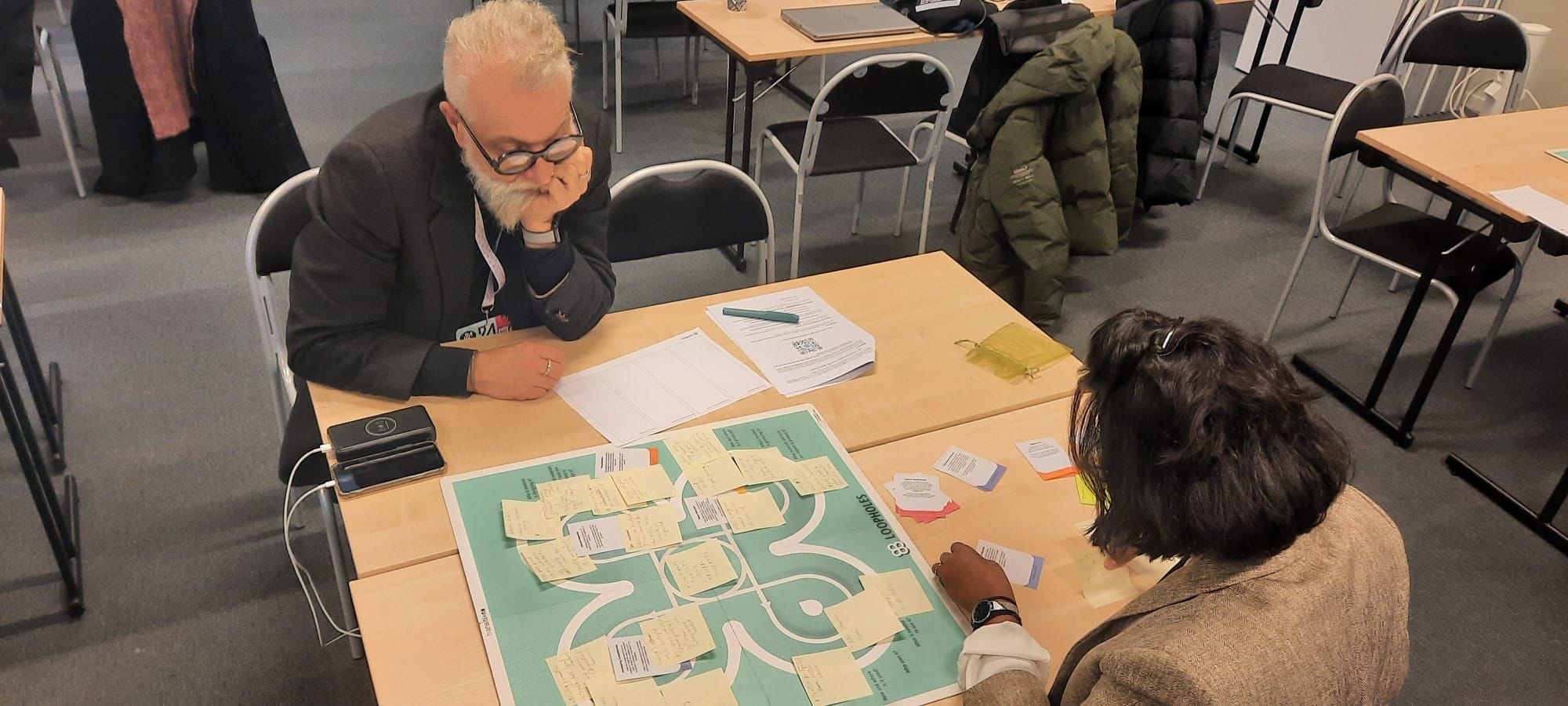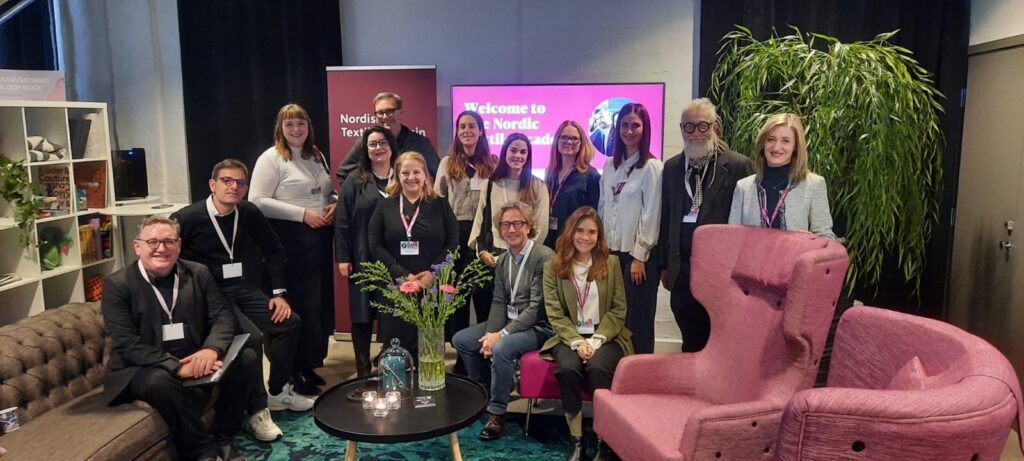TRANSITIONS partners were in Borås (Sweden) for the Mid-Term meeting
Transitions partners were in Borås in November 2023 to participate in seminars and workshops in the Borås Textile Days, visit Swedish textile companies and test the Loopholes Toolkit with different stakeholders.
Transitions partners were in Borås during the Mid-Term Meeting of the project in November 2023. The Transitions project will create a modular training programme based on Industry 4.0 for a new circular system for textile and fashion by setting up innovative Transition Labs based on real practices and challenges. During the Mid-Term meeting, partners could work further on designing the prototype curricula through the Loopholes Toolkit, which supports participants in working together and creating complete customer journeys and data flows that open up the gateway to future production systems. Participants can reflect on their companies’ current processes and scale them into a product-service system (PSS). In the workshop carried out in Borås, various stakeholders participated. They could test the Loopholes Toolkit by describing the processes of their projects and identifying the main strategies to integrate new technologies into circular business models.
On the 14th of November, partners had the opportunity to participate in Next Textile 2023, within the Borås Textile Days, with different seminars and workshops on the need to change from linear to circular. At the event, partners enjoyed a presentation by Linda Worbin, who is responsible for material development and textile innovation at IKEA. Linda explained the need for companies to achieve results while transforming into the new sustainable environment required by consumers and regulated by the European Union. She explained how IKEA uses a pentagon to guide the development of new products, considering design, function, quality, sustainability, and maintaining an affordable price. Linda stated, ‘We continue to create products that people love, trust, and can afford.’ In textile products, they work to reduce the consumption of materials such as polyester, polypropylene, polyamide, and acrylic while promoting the use of cotton, wool, recycled cellulose, recycled polyester, and new biopolymers, all to reduce the ecological footprint of their products. IKEA faces the future with one of its founder’s phrases: ‘We have a lot left to do; a wonderful future awaits us’.
Another interesting presentation was made by Pascale Moureau, founder of the Ohana agency in Brussels. Pascale Moureau outlined the path that will lead the textile and fashion sector from unregulated to regulated within the European Union. She introduced the new social and environmental legislation that the European Union is preparing, which is divided into three levels. At a business level, she highlighted the role of the sustainable corporate reporting directive. At a product level, she discussed the new eco-design directive, the review of regulations concerning permitted chemicals in textile products – Reach – the new Digital Product Passport, and the new Waste Framework regulation. Pascale concluded her presentation by discussing the third regulatory level, which refers to combating greenwashing – Green Claims – and regulations on textile product labelling. It was an outstanding session in which she clearly and accessibly summarised the regulatory transformations that will affect the textile and fashion sector in the coming years.
Partners also had the pleasure of attending a presentation by Ana Kristiansson, the founder and creative director of desinder.com, a holistic creative agency for clothing brands. Ana introduced five circular business models: (1) sustainable inputs – eco-design, minimal waste, on-demand production; (2) life extension – durability, timelessness; (3) recourse recovery – recycling, upcycling and downcycling; (4) sharing – re-commerce and P2P platforms; and (5) product as a service – rental or subscription. Ana highlighted, ‘Each year, millions of tonnes of clothes are produced, worn, and thrown away. 57% of all discarded clothes end up in landfills. 1% of textiles are recycled.’
On the 15th of November, Transitions partners visited the company Gina Tricot. Rebecca Watkins, the global sustainability director at Gina Tricot, explained how they approach sustainability within the brand. One of their activities is reducing the amount of product stock by delaying their purchasing decisions until they have the maximum market information available to avoid overproducing items that won’t sell later. They also work to simplify the compositions of their products to facilitate the subsequent recycling of garments while also planning to incorporate recycled materials into their clothing. Another sustainability strategy of the brand involves increasing the quality and durability of their garments. Rebecca explained that the brand is exploring new business models which go beyond the purchase and sale of products, such as reselling their products, second-hand sales, and garment rental. They also plan to modify unsold products (remake). Rebecca asserts that, based on her brand experience, the market needs to be more sensitive to conscious and sustainable buying and that regulatory and technological development is necessary to guide and support the sustainable transformation of the European fashion sector. Finally, Rebecca explained the need to reinvent the traditional value chain.
Another visit was to Eton Shirts, a luxury men’s shirts and accessories brand founded in Sweden. Erik Hedlund, the strategy and business transformation director, described their digitalised processes, with a fully integrated and automated end-to-end flow. They offer a complete personalisation experience from the design to the measurements, with the possibility to personalise every design element. They also provide an on-demand service to eliminate stock-outs and ensure designs in all available sizes.
